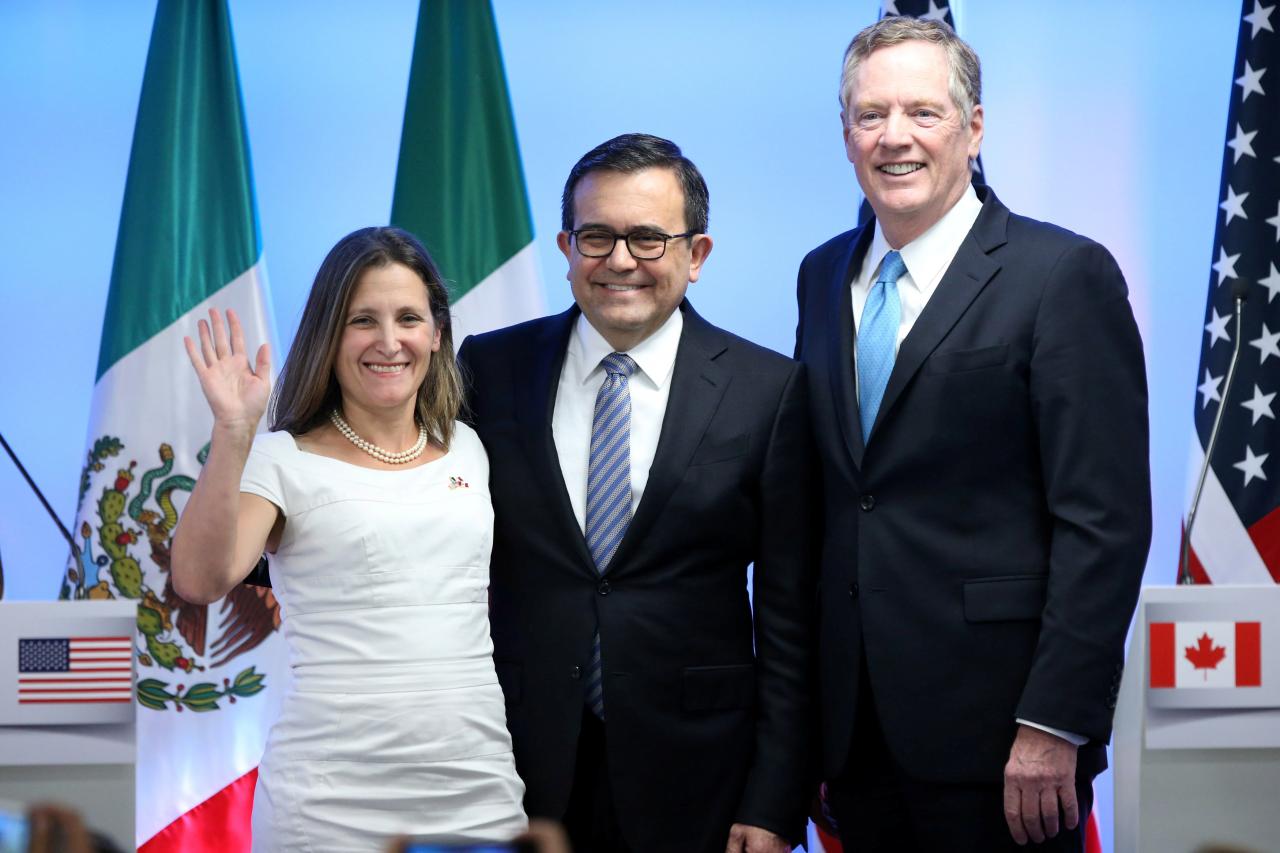Despite Trump Threats Ministers Claim NAFTA Progress

Canadian Foreign Minister Chrystia Freeland together with U.S. Trade Representative Robert Lighthizer, and Mexican Economy Minister Ildefonso Guajardo sought to quell concerns about U.S. commitment to the North American Free Trade Agreement after Trump’s recent threats to terminate it
The three ministers released a joint statement claiming they made progress to update NAFTA although the round did not delve deeply into the toughest issues.
“We’ve established a good foundation for the future rounds of talks”
– Chrystia Freeland
Lighthizer said no chapter of the pact was completely wrapped up, but advances were made in consolidating language about small businesses, digital trade, the environment and services, among other things.
“We feel like we’ve done as much as you can hope to do in two rounds,” he told reporters at the end of talks in Mexico City. “This is kind of warp speed we are working at.”
The ministers announced a third round of talks in Ottawa for Sept. 23-27. Guajardo said more complex issues such as Mexican wages, regional content rules and the U.S. trade deficit with Mexico would begin to be addressed in those sessions.
The United States did not make specific proposals on these subjects during the five-day round in Mexico, Guajardo said, looking ahead to a debate in future rounds about how to get a better deal for workers in all three countries.
NAFTA, first implemented in 1994, eliminates most tariffs on trade between the United States, Canada and Mexico.
Critics say it has drawn jobs from the United States and Canada to Mexico, where workers are paid far lower wages. The accord’s supporters say the loss of manufacturing from the United States has more to do with China than Mexico.
If NAFTA collapses, costs could rise for hundreds of billions of dollars in trade as tariffs return, potentially saddling consumers with higher prices and less availability of products ranging from avocados and berries to cars and trucks.
The three ministers restated their goal of reaching a new NAFTA deal by the end of the year to avoid conflicts with 2018 elections in Mexico and the United States. Moving quickly to consolidate texts is paramount if they are to achieve that goal.
It took five years and more than 20 negotiating rounds to broker the 12-nation Trans-Pacific Partnership trade deal that Trump pulled out of right after taking office.
Freeland gave the most upbeat message, praising the working relationship between the three countries, and saying they had established a good foundation for the future rounds of talks.
Reuters












